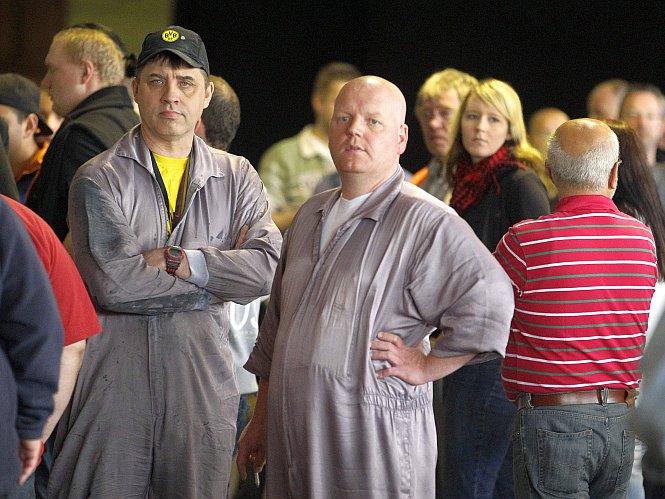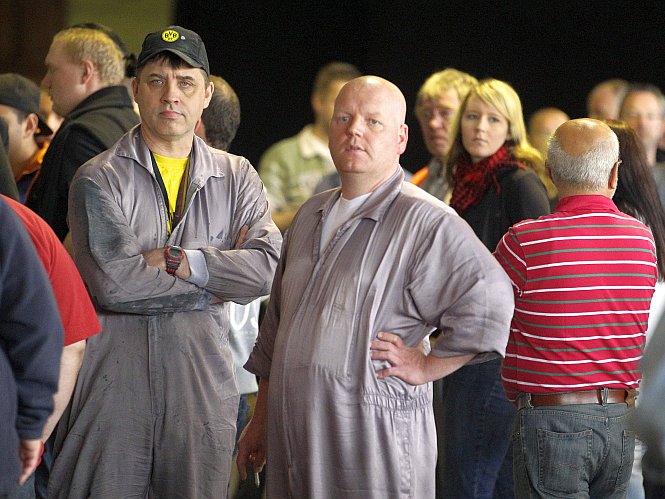On the 150th anniversary since its founding, European carmaker Opel is planning to cut the working hours of its German workforce in half. Thousands of Opel plant workers will be affected. Opel’s Russelsheim factory consisting of 13,800 workers and the Kaiserslautern factory with 2,500 workers will be working a half-day schedule for a total of 20 days between September and January.
Two of the main reasons for this underperformance are tough competition from very successful German compatriot carmakers such as Volkswagen, Mercedes, and BMW, and the ongoing euro debt crisis that has hampered Southern European car sales in countries like Italy, Spain, and Greece.
“In consultation with the works council and the IG Metall labour union, Adam Opel AG will introduce short-time work at its plants in Russelsheim and Kaiserslautern from September,” Opel said in a statement.
According to the CAR (Center of Automotive Research) survey, during the first half of 2012, Opel lost on average $1,200 per car sold before interest and taxes.
Opel will not cut its workforce but instead will implement a government-subsidized short-time work program. The program allows workers to work fewer hours per week and not lose their employment. This program was popular in Germany during the 2008 financial crisis and helped companies maintain their workers through the hard times and kept the unemployment rate low.
GM—the mother company of Opel—suffered a $747 million loss on its European operations in the first half of 2012, and for its part, Opel saw a 15 percent plunge in deliveries in the same period.
“The European automobile market is declining dramatically,” said Holger Kimmes, who is Opel’s head of HR. He also added that flexible working hours were no longer sufficient to offset a decline in use of the Russelsheim factory.
“Closing down plants for a few days isn’t going to help Opel with its most pressing problem of overcapacity,” said Sascha Gommel, an analyst from Frankfurt-based Commerzbank, referring to the fact that Opel has structural problems and is not optimally utilizing its factory space.
GM shares slid 1.2 percent to $21.34 last Thursday when the cutbacks at Opel were officially announced. GM’s stock finished the day yesterday at $21.22. Its shares are still up 4.7 percent year to date, underperforming the broader market, but well ahead of its U.S. competitor Ford, which has also been impacted by the crisis in Europe.
The Epoch Times publishes in 35 countries and in 19 languages. Subscribe to our e-newsletter.






